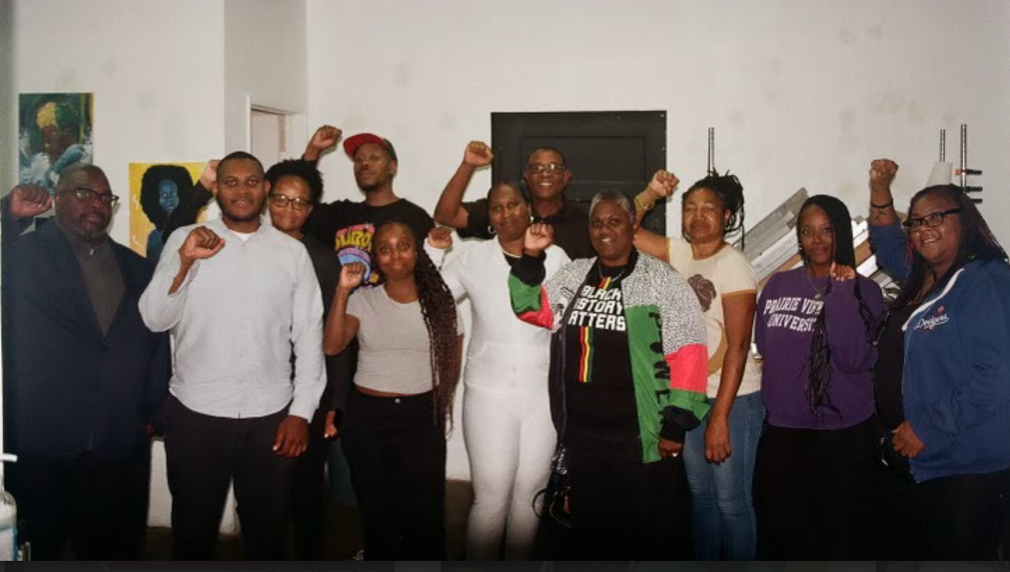Tenant Empowered Affordable Housing Preservation
LiBRE empowers tenants with the resources, moral support, and innovative solutions needed to avoid displacement through Know Your Rights workshops, Neighborhood Tenant Council meetings, and our involvement in the creation of Long Beach’s first Community Land Trust. Our members are educated on tenants' rights, housing policy, and advocacy and are making a difference in their neighborhoods already!

What is the primary issue area that your application will impact?
Affordable housing and homelessness
In which areas of Los Angeles will you be directly working?
Long Beach Gateway Cities County of Los Angeles (select only if your project has a countywide benefit)
In what stage of innovation is this project, program, or initiative?
Expand existing project, program, or initiative (expanding and continuing ongoing, successful work)
What is your understanding of the issue that you are seeking to address?
Unfortunately, like many cities in California and across the country, racialized housing and health disparities persist in Long Beach, owing to the legacy of redlining, racially restrictive covenants, and ensuing discriminatory policies and practices that have created significant racial-spatial wealth and health gaps. As a result, Central, West, and North Long Beach, as well as parts of Downtown, , whose residents are majority low-income, majority renters, and majority Black, Indigenous, and people of color (BIPOC) are neighborhoods of persistent disinvestment and disadvantage. Countless renters, the majority being people of color, have also already been displaced to the neighboring “gateway cities,” including Paramount and Compton. These areas are also very underserved.
Describe the project, program, or initiative this grant will support to address the issue.
Since 2016, Long Beach Residents Empowered (LiBRE) has been organizing BIPOC tenants —the city’s most impacted tenants—to build tenant leadership and power to fight for their individual housing situations and working collectively to successfully pass local tenant protection, affordable housing, and anti-displacement policies. These pieces work together to help tenants assert their rights and secure permanently affordable housing so folks don’t continue to get priced out of their neighborhoods. Knowing the Black community has experienced the deepest and most persistent housing injustice, including gentrification and displacement out of Long Beach, LiBRE began a formal partnership with Black Lives Matter Long Beach to co-hire a community organizer specifically to reach out to and build relationships with Black residents. As a result, the Black Neighborhood Tenant Council now meets monthly. LiBRE also offers bimonthly Know Your Rights trainings (in person and virtual) through our work with Stay Housed LA to create a more significant network of tenant power throughout the region. Last year we also helped in the formation of Long Beach's first Community Land Trust (CLT). CLT's help stabilize neighborhoods by creating pathways toward home ownership for low-income individuals and families. These strategic, culturally sensitive alliances speak to LiBRE's commitment to addressing historical and ongoing disparities through targeted action.
Describe how Los Angeles County will be different if your work is successful.
Ultimately, LiBRE's work is about building a powerful, interconnected tenant movement that spans across Los Angeles County. By connecting tenants, sharing resources, and amplifying collective voices, LiBRE aims to create a force that cannot be ignored. Through our multifaceted intersectional approach, LiBRE is striving to create a more just and equitable housing landscape for all. At the heart of LiBRE's mission lies a deep understanding that tenants, especially those within Black, Indigenous, and People of Color (BIPOC) communities, often face systemic barriers to exercising their housing rights. LiBRE envisions a county where these tenants are not only aware of their rights but also feel emboldened and equipped to advocate for themselves, we also envision a county where public officials are allocating the money needed to protect renters from unjust evictions and gentrification and prioritizing affordable housing.
Approximately how many people will be impacted by this project, program, or initiative?
Direct Impact: 15,000
Indirect Impact: 45,000